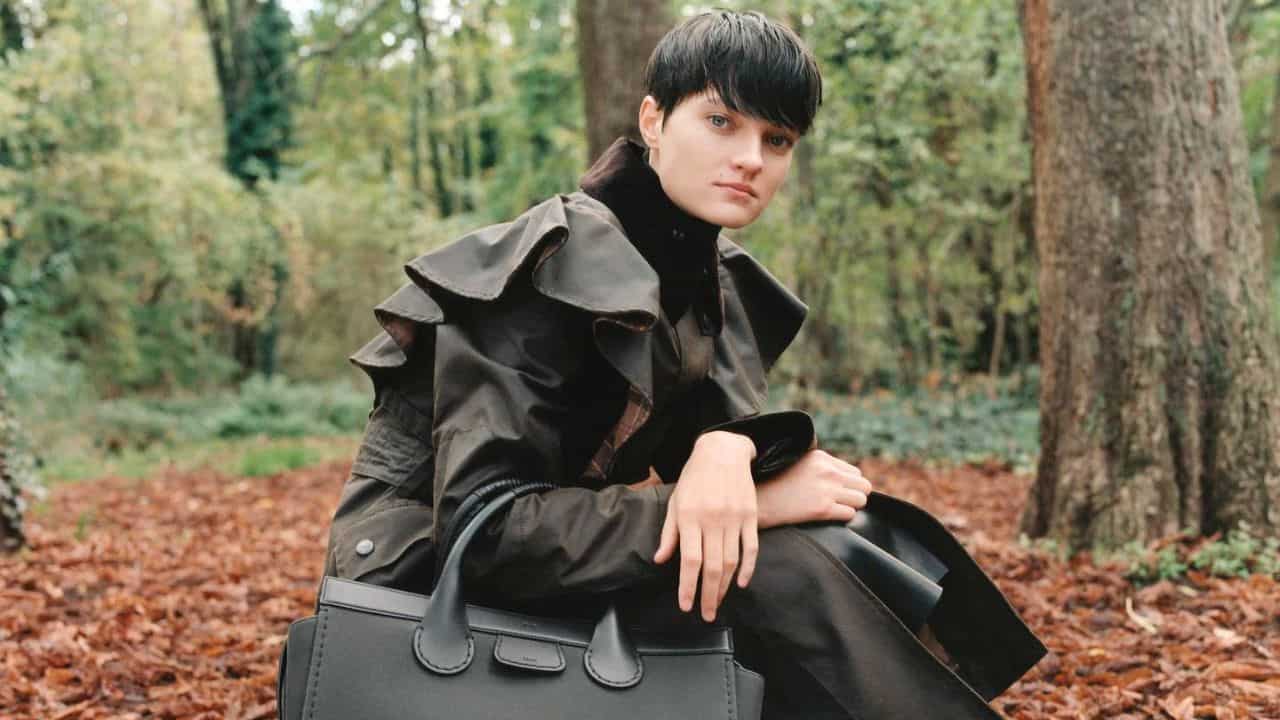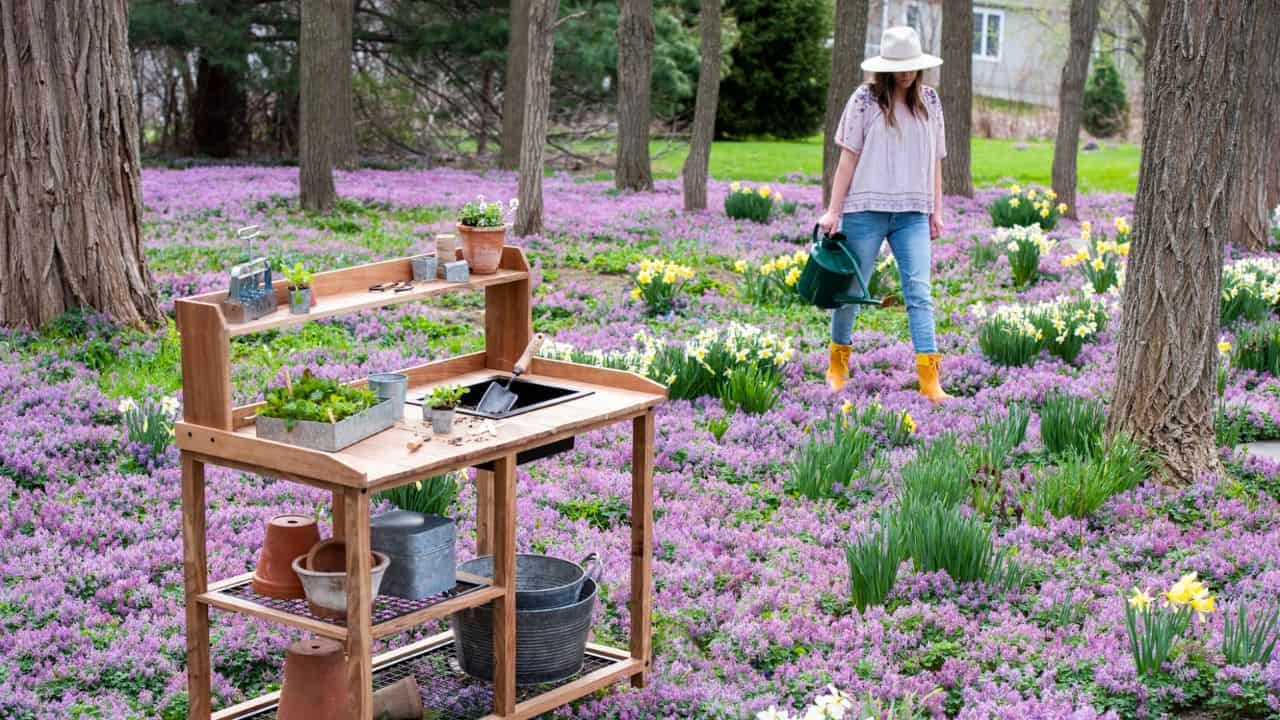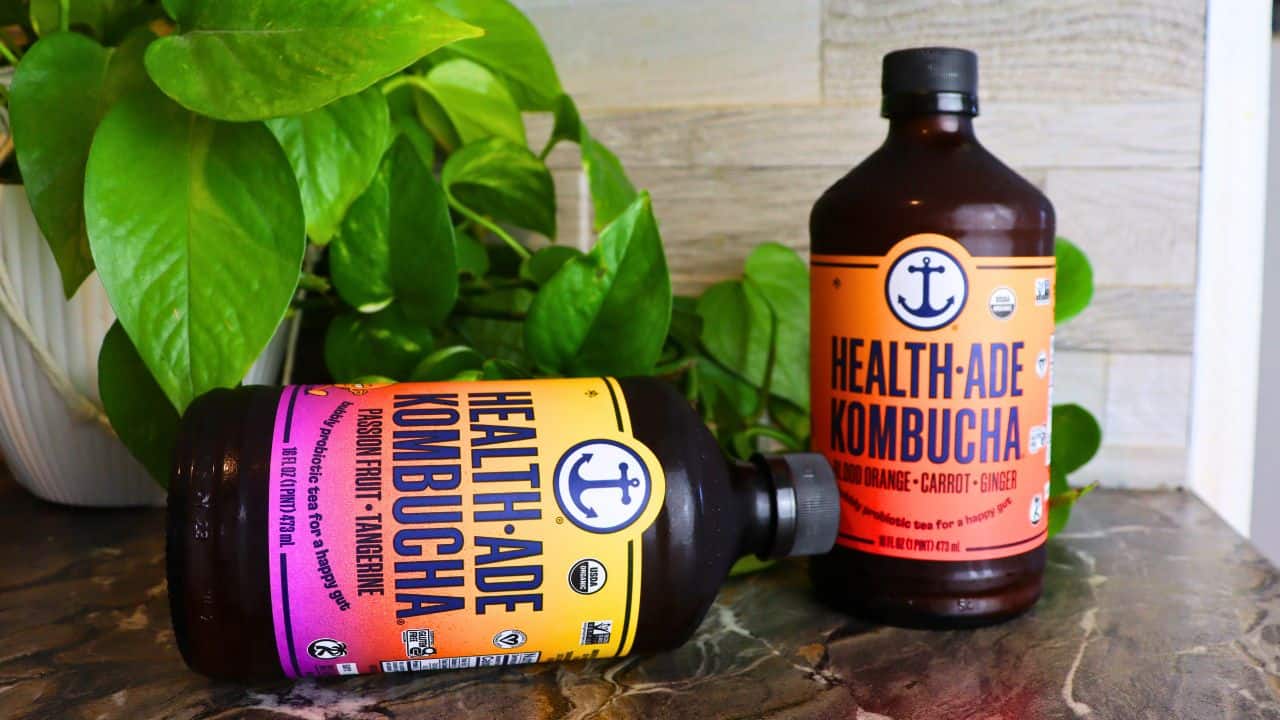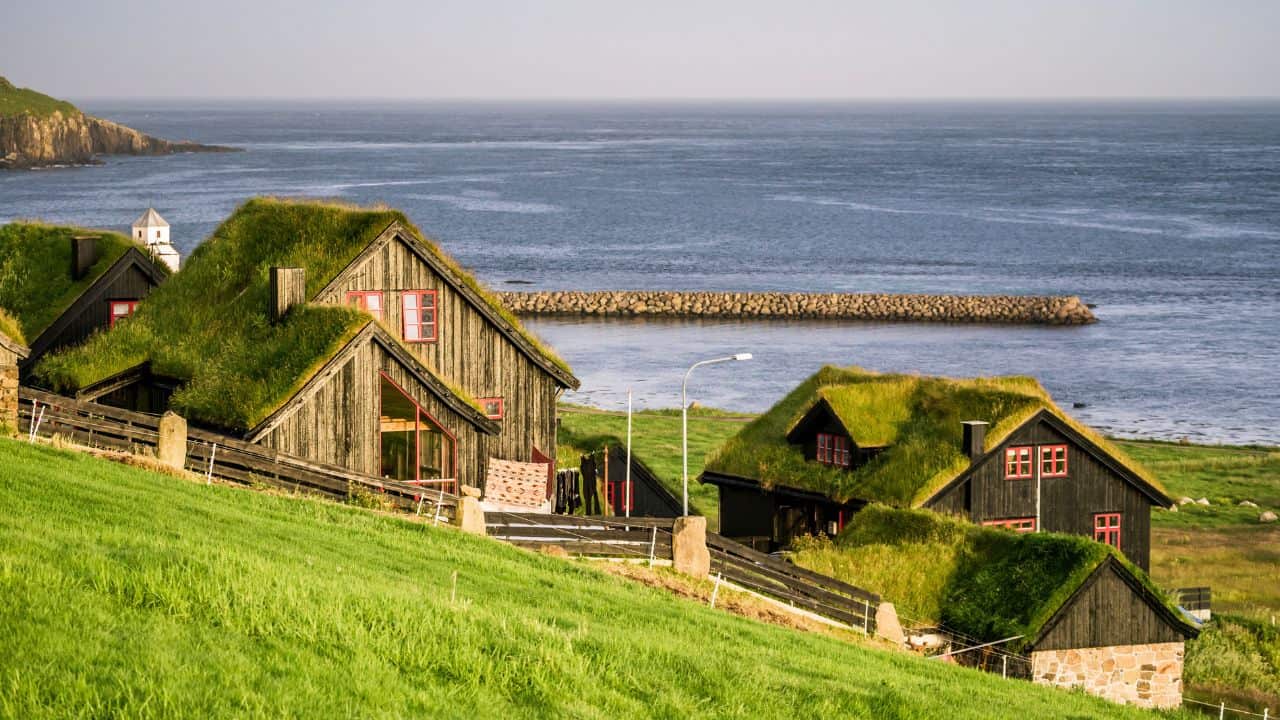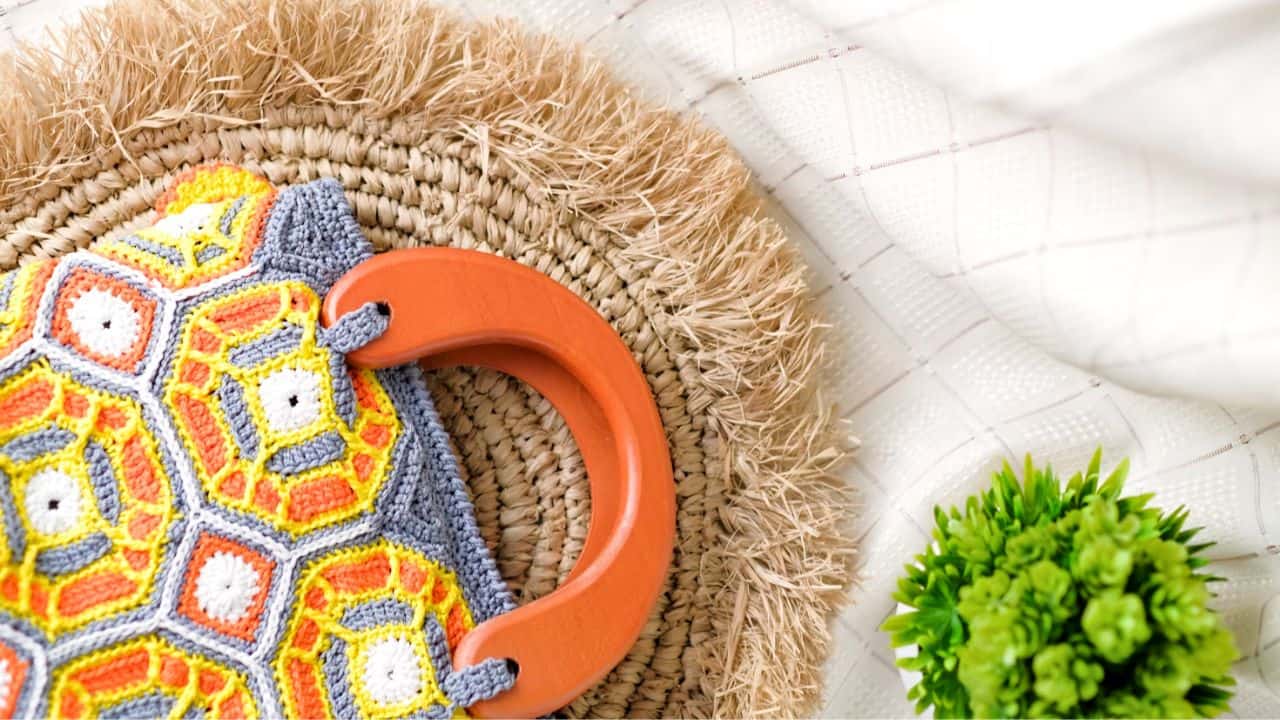Seb Pole has just come in from his garden. He’s been tending his bees, harvesting some of his 100 species of herbs that are growing near Bristol and trying to balance running a multi-million pound business with being a leader of ethical business and practise his herbalism at a clinic in Bath.
Seb answered a job ad 17 years ago to join co-founder Tim Westwell in creating a business in a ‘sustainable and healthy way’. Pukka Herbs was born.
For those that didn’t see the headlines last year, Pukka Herbs was sold to Unilever for an undisclosed sum. While some were disappointed, Pukka’s now in a place to grow faster, develop a bigger market for its organic teas and supplements and ultimately pump more profits into initiatives that range from supporting FairWild (a global certification programme for herbs) to working mapping its carbon footprint from ‘crop to cup’ – a carbon zero target has been approved externally for Pukka to work towards.
While Seb makes a Pukka cuppa I catch up with him to find out how c has become an everyday household brand, available in 40 countries, while remaining a pioneer in running an ethical business.
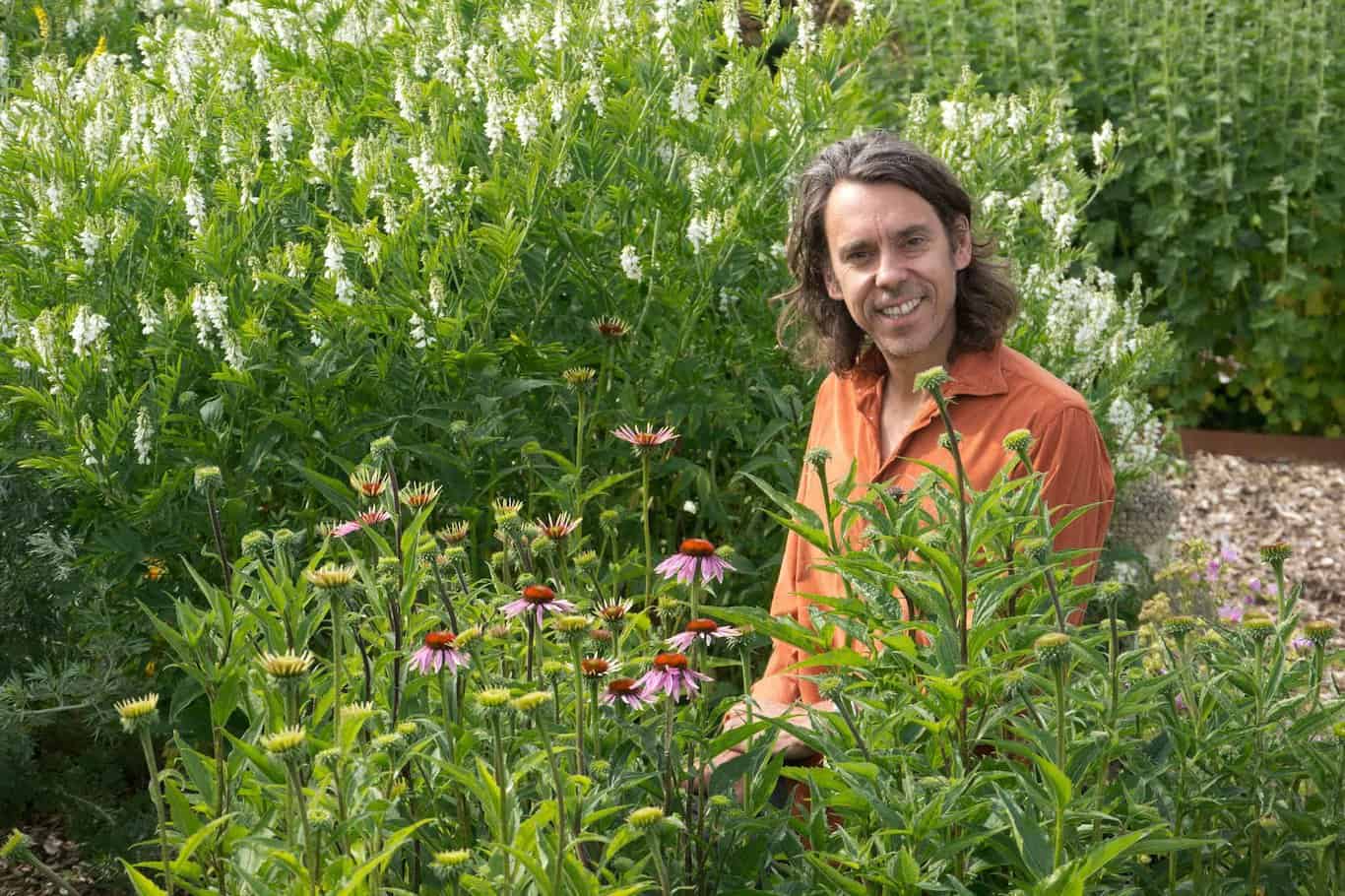
pebble: Pukka has become a global champion of Fairtrade, Fairwild, Soil Association, B Corp and lots of other sustainable credentials – was that always part of your vision for the brand?
Seb Pole: In terms of B Corp and 1% For The Planet, those have always been a central part of Pukka Herbs. We have to have third party certification for everything we do. We don’t mark our own homework it’s like a politician counting their own vote.
We are in Bristol and we have always been 100% organic. We became part of the steering group to help set up the FairWild standard, which took eight years before it got set up and then Fair For Life is a supply chain certification – everyone is third party checked – even us at Pukka and certified all across the world.
The herbal industry is at the edge of commerce. It’s not a cash crop, it’s often at the margins of society and the pickers are on the margins literally but we want to help the people in our supply chain so we want to make sure our growers get a direct benefit by working with us. Some of the projects we’ve worked with for over 15 years and you can see the change in the landscape and the empowerment of the people.
pebble: Going back 17 years, what was your first product?
SP: Our first three teas were our Relax, Refresh and Revitalise – Ayurvedic in sense but we had to move away from the Ayurvedic names it was too early for the UK back then. They’re all about balance and boost immunity and revitalise treatment to get rid of stagnation and help metabolism. Still going strong all these years later.
We might tweak a recipe if we have a supply issue but every time we make a new brew then we think about how do we serve a purpose bigger than the product. The conservation of the land is important part of making each tea, how do we make a better environment. For example licorice is over-harvested in the wild so we have worked to create a sustainable supply chain that replaces the plants.
Our growth – and we’ve grown every year – isn’t just about reaching as many people as possible and teaching them about the power of herbs, but also growing the amount of organic land out there that’s sustaining more plants and more people.
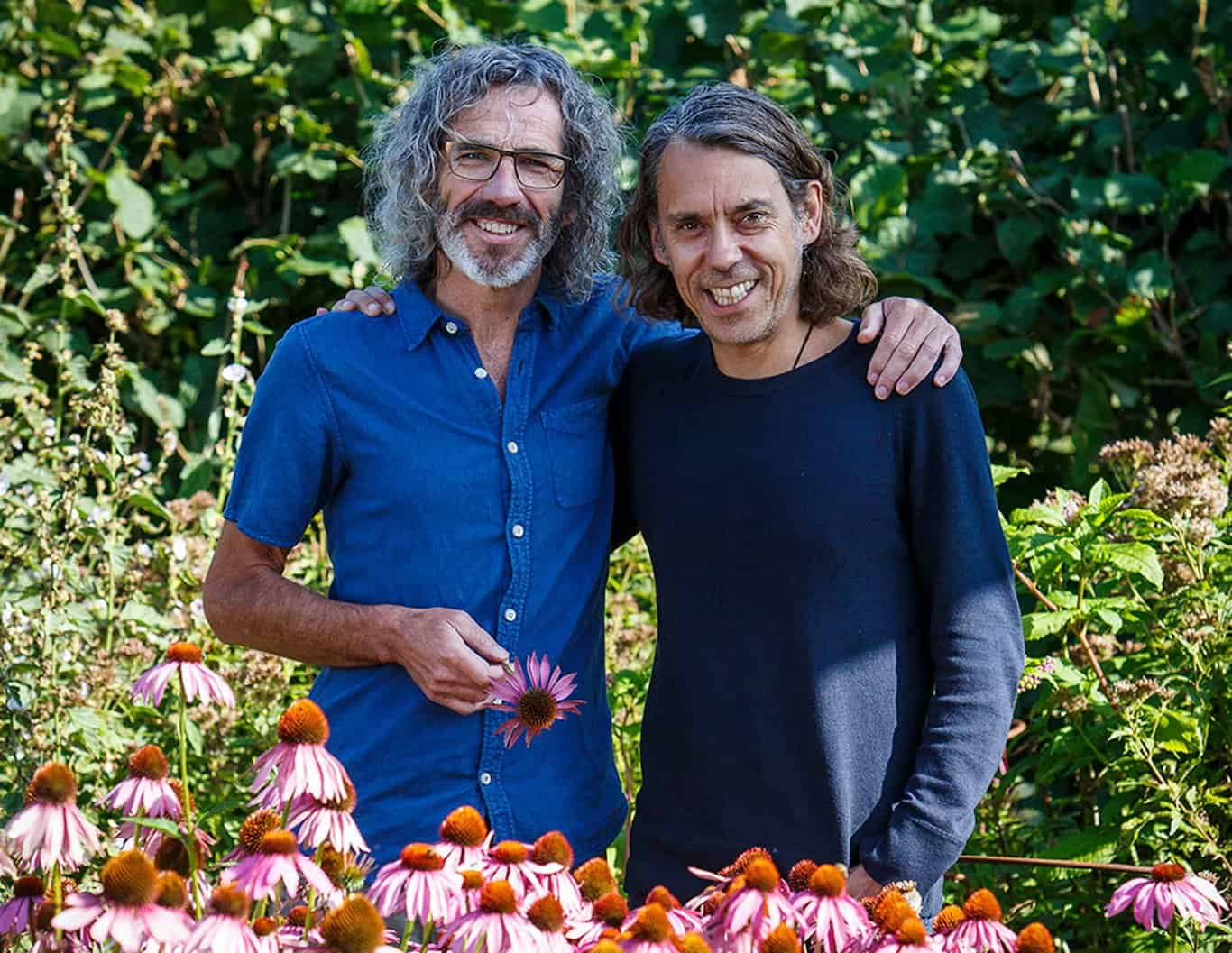
pebble: Who was your first hire outside of you and Tim?
SP: We’re 17 years old but it was Tim and I for quite some time and I’d already been making tea for a while before Pukka. We didn’t pay ourselves for at least three years after setting up Pukka, so our first hire was basic admin assistance and accounting. Then a bit of marketing help getting the stores like Planet Organic involved – we were the smallest brand on the block back in 2003.
We didn’t go for big hires, we didn’t make enough money. Tim and I put in two grand each from our credit cards.
The idea of doing something just so it fails, I get the point of learning through mistakes but we’re very focused at Pukka – we love plants and that’s all we do. We don’t follow trends, we follow the path of herbalism so we’re just doing the best job to respect and understand herbalism.
We did no market research when we set Pukka up. If you’re following a trend you’re too late and you’re not being the ones to create it. One of the most exciting things about creating a new company is getting together with people who have the belief and the commitment to make a personal sacrifice for a bigger purpose.
pebble: What was the hardest thing for you in creating your own brand and wanting it to be as organic and sustainable as possible?
SP: We knew it had to be organic and we’ve always been prepared to pay more for our ingredients. Our business has a big responsibility to help with equality so we have a role to play there.
We have kept practitioner herb quality level as we’ve expand and grow. Most of our herbs are medicinal grade herbs with twice as much essential oils as other herbs. There’s a limited supply so keeping that quality which has been our biggest commitment – it’s our biggest strength and also our biggest weakness.
We have the best quality herbs in the UK, if not the world. 20% of people at Pukka have degrees in herbalism or plant sciences.
Our growers love us because we work five years ahead so we’re committed to larger harvests and looking for partners that really care. It’s not just about this year’s crop but the species’ quality, how they’re managed, the harvests and yields – there’s a lot of scientific research and long term contracts for growers but the herbs have to meet our standards. Our partners respect that and know we can be hard to work with. We don’t accept it if it’s not up to scratch.
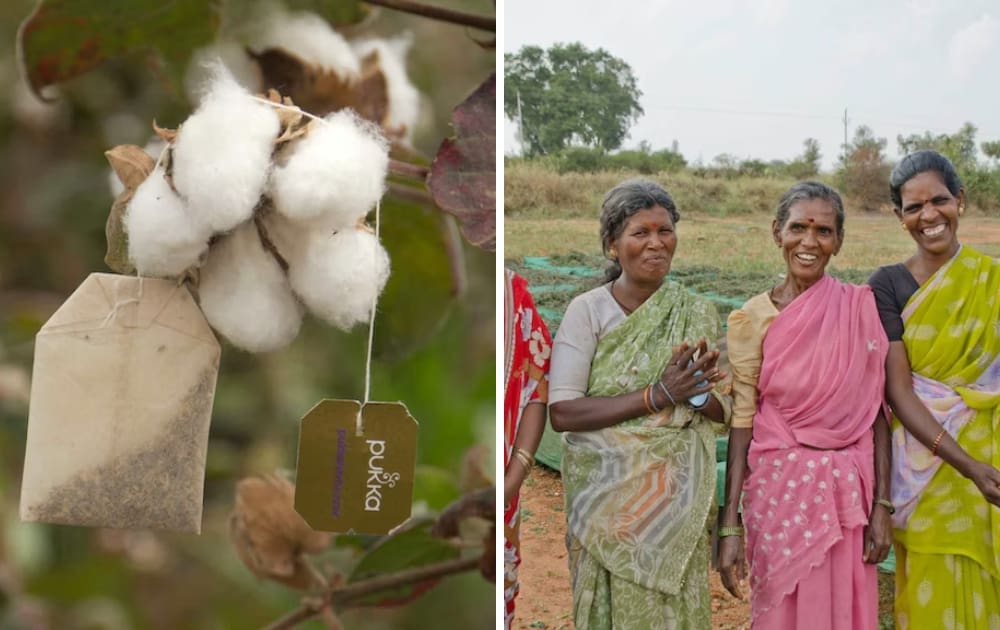
pebble: Many eco-friendly brands fail when they try to scale up as they don’t have the commercial vision to support global growth. How did you avoid this pitfall?
SP: I think it comes down to us and our love. Pukka is our life and we’re surrounded by proper experts. Pukka means being authentic and that’s us. Pukka is a bigger being – a divine, feminine, wise, healing presence – that’s what we are in service to, to look after the world and the people in it.
Running a company is hard and exhausting and there’s little support for companies who are trying to be organic and sustainable so you need to make sure what you do gives you energy. Pukka asks a lot of everyone here, but she gives it back.
pebble: When did you realise you had a company that was worth a great deal of money?
SP: I never thought Pukka was worth a lot of money, we have a lot of purposeful value. But maybe about after 10 years. Tim and I had won some awards for best product and won the most Gold Taste stars and people kept coming to us to distribute Pukka in their country. We were sent love letters regularly so it was after about eight years of that when we thought we’ve got something here and we need to look bigger than we thought.
Conservation through commerce is something I’m very passionate about – if a forest is worth something standing, it will stay standing.
Commerce can drive conservation and organic farming and Fairwild helps with that. Environmental challenges we have in spades and we’ve lost 75% of all insects and birds across Europe – we need a way of living in society that regenerates nature and we’re in that business.
We are now the biggest herbal company in the world so I want to make sure we can do the most good.
“Conservation through commerce is something I’m very passionate about – if a forest is worth something standing, it will stay standing”
pebble: Has it changed since you were bought by Unilever?
SP: In many ways not at all, the quality, the mission and vision haven’t changed at all. On the other side once you get bigger you’ve got a greater responsibility, greater scrutiny although I think the bigger you are the bigger impact you can make.
We all love ambition but we don’t celebrate success. We want to the world to change but we pull each other back. It’s a difficult thing to argue about on social media, some stuff I see on social media hurts but ultimately we’re part of a bigger sustainable movement.
We are tribal and we like our own gang but it’s helpful to be stretched outside your world view. I think we need to create a more integrated world where everyone is working towards a better environment and we need the big companies to change too. The small companies are amazing and they’re doing awesome things but we need those corporations to wake up and make a commercial commitment with their stakeholders and make sustainable changes more quickly.
pebble: Is it unfair that bigger brands are perceived to be inherently bad for the planet?
SP: It can’t all be big brands are bad. Bigger brands can reach more consumers and impact supply chains which means you can have more scrutiny and make long-lasting change. Big business is changing – a lot of CEOs are now middle aged, parents and want to leave the world a better place.
We have an ironclad commitment, legally and morally, to keep Pukka fighting our mission. I hope Pukka is an example of a big brand doing good. We definitely are in the tea category and I feel Pukka is a brighter beacon and the further it will go and shine a light is a good thing.
There are seven billion people in the world, two billion people make and grow the food, clothes and so on that we all need. Did you know 400 companies control 80% of all that trade?
Ultimately Unilever will be around for a lot longer than politicians and can have a bigger impact over a longer period of time.
pebble: What do you wish consumers knew about Pukka?
SP: People don’t realise the lengths we go to get the best herbs. We aren’t just selling herbal teas, we have the supplements and we have the best grade herbs that we pay our suppliers twice as much for. We are very holistic in the old sense of the world.
pebble: What advice would you give a brand starting out today?
SP: Become a B Corp if you haven’t already and embed your values and who you are in everything you do. We have four wisdom seeds at Pukka based on Indian traditional yogi – effort, respect, purity and compassion. As you grow you get new people in who weren’t there at the beginning and you get to weave that story through everything you do and reinvent that story all the time.
As we got bigger we set up a mission council which reports into our board. We have external experts on climate change, healthcare, social change, agriculture – they tell us and critique us and tell us what to do better. Also get an external advisory board who can keep a view on the future, you’re generally so busy running your business you can’t see the wood for the trees.




